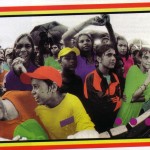
Grief is how we feel about loss. Because every relationship is unique, we grieve the loss of each relationship differently.
Grief is much more than just a person’s emotional response to a loss. Grief is everything about the loss. Grief does, of course include emotions and thoughts but it also includes physical and behavioural responses as well.
Grief is contradictory and confusing. When you are grieving you may feel a need to be part of something or to be away from everything. You may need to feel deeply or to avoid your feelings all together, you might want to talk and to be silent.
When we grieve we may have a flood of different emotional, physical, social and behavioural responses.
We may feel sad, angry, guilty, anxious, lonely, tired, helpless, shocked or just numb. Grief can affect us physically as well. It may cause a hollow feeling in the stomach or a tightness in the chest and throat. It could make us feel dry in the mouth, oversensitive to noise, short of breath, tired and easily angry to our friends and family.
Grief may cause changes in our behaviour such as sleep and appetite disturbances, absent-minded behaviour, social withdrawal vivid dreams, restless over activity and crying.
We may have feelings of disbelief, confusion and even wild imaginations. Sufferers may turn to alcohol and drugs to escape.
Grief may cause one person to experience bad depression, anxiety, alcoholism or drug abuse or post-traumatic stress disorder. Other people might suppress any feelings of loss and appear totally unaffected. For some people grief is prolonged and seems to never end. For others it does not lead to a successful conclusion and seems impossible to “move on.”
Dealing with grief is very, very difficult. But here is some advice. It will take time.
• Accept the reality of your loss
• Work through the pain of grief
• Do it at your own pace
• Adjust to the environment in which your loved one is missing
• Emotionally relocate your loss and move on with life.
Once these four things have been completed, they say, grief is on the way to being resolved. If you settle your grief it doesn’t mean that you have to abandon the memory of your loved one; rather it is that you recognise a different perspective on the deceased and begin to fid joy in their life and in relationships with others. It is not the end of a relationship, it is a transformation.
But remember, you don’t have to go it alone. If you are having problems dealing with loss there are grief councillors who can help you make sense of the loss. If you think you may need help, contact your Aboriginal Medical Service.
Damien Charles Donovan
24 August 1981-18 April 1998
Damien loved life to the fullest. He never once, in his 16 years complained about life and always had that beautiful big smile on his face.
He was taken from us so suddenly . We will miss you very much and will always keep your memories alive and strong within the family.
All your friends will miss you deeply.
Our love for you, my brother and son will never die.
Rest in peace
Love Mother Noelene, Father Barry, Sister Tammie, Brothers William, Cam, Barry & Dwayne.






Comments are closed.